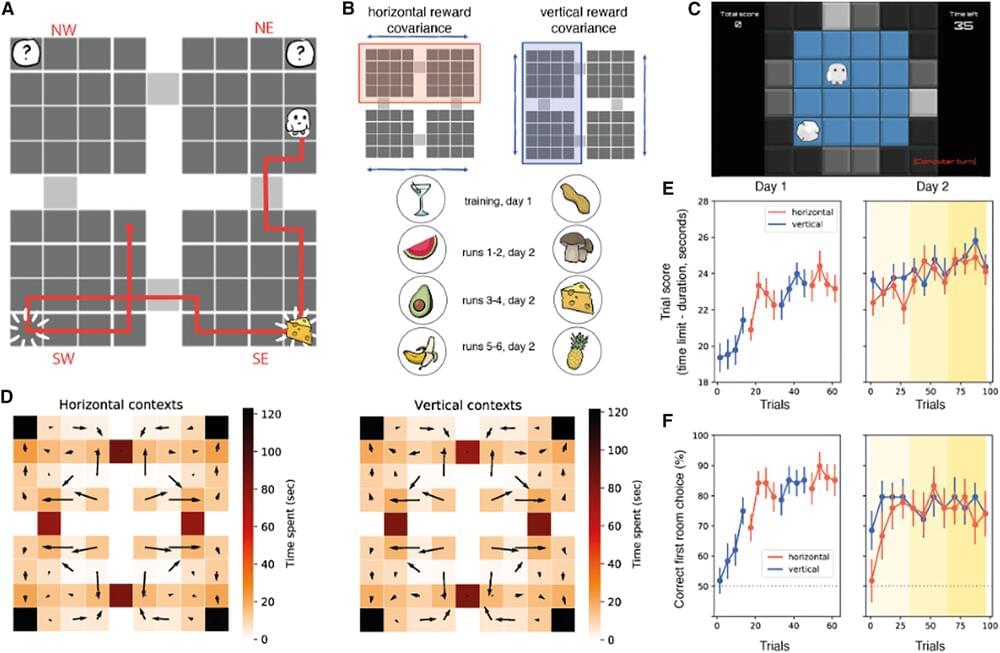Human decision-making has been the focus of a wide range of research studies. Collectively, these research efforts could help to understand better how people make different types of everyday choices while also shedding light on the neural processes underpinning these choices.
Findings suggest that while making instantaneous decisions, or in other words, choices that need to be made quickly based on the information available at a given moment, humans greatly rely on contextual information. This contextual information can also guide so-called sequential decisions, which entails making a choice after observing the sequential unfolding of a process.
Researchers at the University of Oxford, the National Research Council in Rome, University College London (UCL), and the Max Planck Institute for Human Development recently carried out a study exploring the impact of context on goal-directed decision-making. Their findings, published in Neuron, suggest that goal-seeking ‘compresses’ spatial maps in the hippocampus and orbitofrontal cortices in the brain.









Comments are closed.